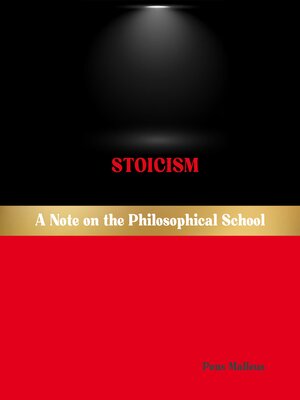Stoicism
audiobook (Unabridged) ∣ A Note on the Philosophical School · Western Philosophical Schools
By Pons Malleus

Sign up to save your library
With an OverDrive account, you can save your favorite libraries for at-a-glance information about availability. Find out more about OverDrive accounts.
Find this title in Libby, the library reading app by OverDrive.



Search for a digital library with this title
Title found at these libraries:
| Library Name | Distance |
|---|---|
| Loading... |
This audiobook is narrated by a digital voice.
In a world characterized by rapid change, constant distraction, and increasing uncertainty, the ancient philosophical school of Stoicism has experienced a remarkable resurgence. Though born in the bustling agora of Athens over two millennia ago, Stoicism's principles resonate powerfully in the modern age. This book is both an exploration and a celebration of that enduring relevance—a journey into the heart of Stoic thought, its history, its thinkers, and its transformative potential for our lives today.
Stoicism emerged in the early 3rd century BCE, founded by Zeno of Citium, and was later refined and expanded by thinkers such as Cleanthes, Chrysippus, Seneca, Epictetus, and Marcus Aurelius. Unlike many abstract schools of philosophy, Stoicism was always meant to be practical—a guide for how to live well, how to face adversity, and how to cultivate inner peace regardless of external circumstances. At its core lies a deceptively simple idea: that while we cannot control what happens to us, we can control how we respond. The Stoics taught that virtue—defined as the alignment of our reason with nature—is the only true good, and that external things like wealth, health, and reputation are indifferent, neither inherently good nor bad.
This book aims to provide both a comprehensive overview and a deeply human account of Stoicism. We begin by tracing its historical roots in Hellenistic Greece and its transmission into Roman thought, where it was adopted not merely by philosophers but by statesmen, slaves, and emperors. We examine the lives and writings of the key Stoic thinkers, exploring how their experiences shaped their insights and how those insights remain relevant today. We unpack central Stoic concepts such as the dichotomy of control, the role of reason, the nature of emotions, the importance of virtue, and the art of living in accordance with nature.







